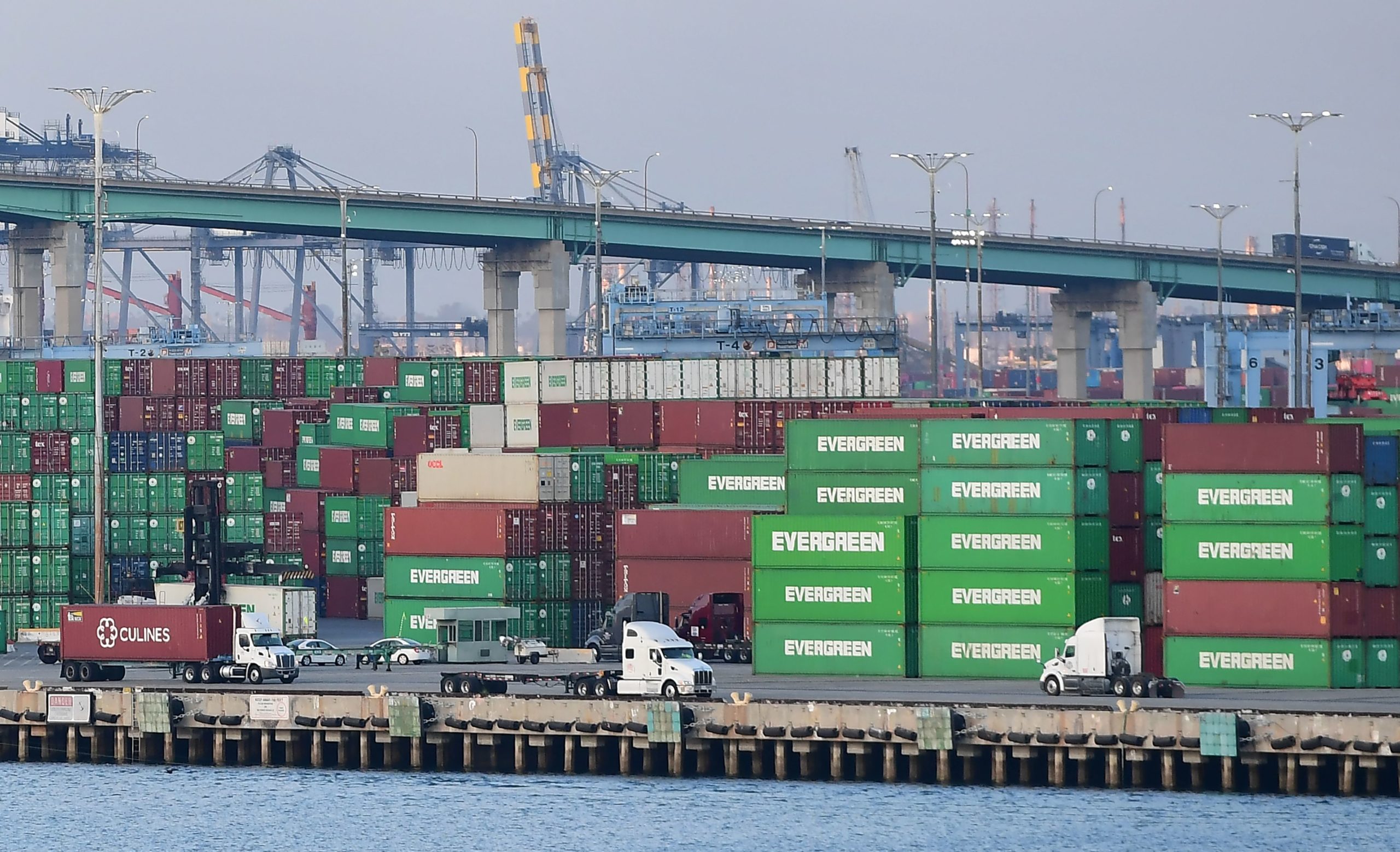Available warehouse space near significant distribution hubs fell to historic lows in the third quarter of 2021, placing even more pressure on supply chain bottlenecks and increasing inflation, according to The Wall Street Journal.
Demand for industrial real estate in the third quarter outpaced supply by 41 million square feet, increasing the vacancy rate to 3.6%, down 0.7% from Q3 2020 and marking the lowest level since 2002, according to data from CBRE, the WSJ reported.
Warehouses near the Los Angeles and Long Beach ports in California, some of the most important distribution points of entry in the country, reached a vacancy rate of 1% in Q3 this year, according to the WSJ. During the same quarter in 2020, the vacancy rate was 2.3%.

Containers stacked high are seen at the Port of Los Angeles on September 28, 2021 in Los Angeles, California. (Photo by FREDERIC J. BROWN/AFP via Getty Images)
“Space in our markets is effectively sold out,” Thomas Olinger, chief financial officer of Prologis, said during the company’s earnings call. “In the last 90 days supply chain dislocations have become even more pronounced, with customers acting with a sense of urgency to secure the space they need.”
Reduced space has added to the widespread supply chain backlogs, causing everything from tighter container shipping capacity to congested rail hubs, higher prices and decreasing supply amid growing demand, according to the WSJ. (RELATED: Biden Says National Gaurd Might Be Deployed To Address Trucker Shortage)
The spike in demand for warehouse availability has been triggered by the shift to online shopping since the COVID-19 pandemic began and retailers pushed to store goods closer to consumers for faster delivery, the WSJ reported.
“A good percentage of that behavior change, it turns out, has stuck,” John Morris, leader of CBRE’s industrial and logistics business in America, told the WSJ about the shift to online shopping.
Real estate data companies CoreLogic and CoStar did not immediately respond to the Daily Caller News Foundation’s requests for comment.
All content created by the Daily Caller News Foundation, an independent and nonpartisan newswire service, is available without charge to any legitimate news publisher that can provide a large audience. All republished articles must include our logo, our reporter’s byline and their DCNF affiliation. For any questions about our guidelines or partnering with us, please contact licensing@dailycallernewsfoundation.org.


